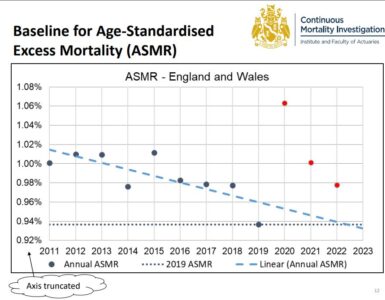It is now two years since the weekend of 7-8 March 2020, when our group came together. It was clear to us back then that we were facing a significant global crisis. We had no idea however that the group would still feel necessary two years on.

Our first two years
Our two years have felt very different from one another. We have tried to match our output to what we perceived to be useful at the time.
In our first year we produced bulletins on a variety of topics related to the pandemic and the global response. That activity is summarised in our retrospective Bulletin 100.
In our second year we have produced more blogs and social media updates, with fewer formal bulletins. We have however maintained our, now fortnightly, Friday Reports. These are now up to issue 62. We endorsed and tracked progress against the UK roadmap, and pushed back when we felt it was too risky to take the next step. We highlighted the emergence of the Delta and Omicron variants, and held Government to account over the booster rollout. In particular, John Roberts has been prolific, with frequent media appearances to discuss progress.
Where are we now?
Two years on and, in the UK, most of the population now have some degree of immunity, whether from vaccination or prior infection. Deaths over the winter period have been no higher than those which occur in a typical flu season. Indeed excess deaths have been negative in the first two months of 2022.
Remaining restrictions have recently been lifted in England, under the Government’s ‘Living with COVID‘ plan. Other UK nations are expected to follow soon. Predictably, this has led to a change in trend for hospital admissions with COVID. These are no longer falling rapidly and in fact have risen slightly in recent days. The rise is most rapid among the over 65s. Whether this is just an “exit wave” speedbump or a longer-term cause for concern, perhaps due to waning immunity among older groups and problems with the latest variant (BA.2), remains to be seen.
What next?
The first year of the pandemic was the year of lockdowns and associated non-pharmaceutical interventions, while vaccines were developed. The second was the year of the vaccines. If we are to pick one theme for the third year, it must be global vaccine equity. A global pandemic requires a global response. But at the same time we still need to monitor variants, being prepared to tailor boosters if necessary. And we must try to get healthcare systems back to some form of normality.
This is all easier said than done, especially when the eyes of the world are, understandably, on the Russian invasion of Ukraine. But COVID-19 has not gone away. While we are still clear that our group has a shelf life, we plan to continue our output for as long as it feels useful. We are grateful to all members of the team, past and present, and to all who have written guest bulletins or blogs for us.















